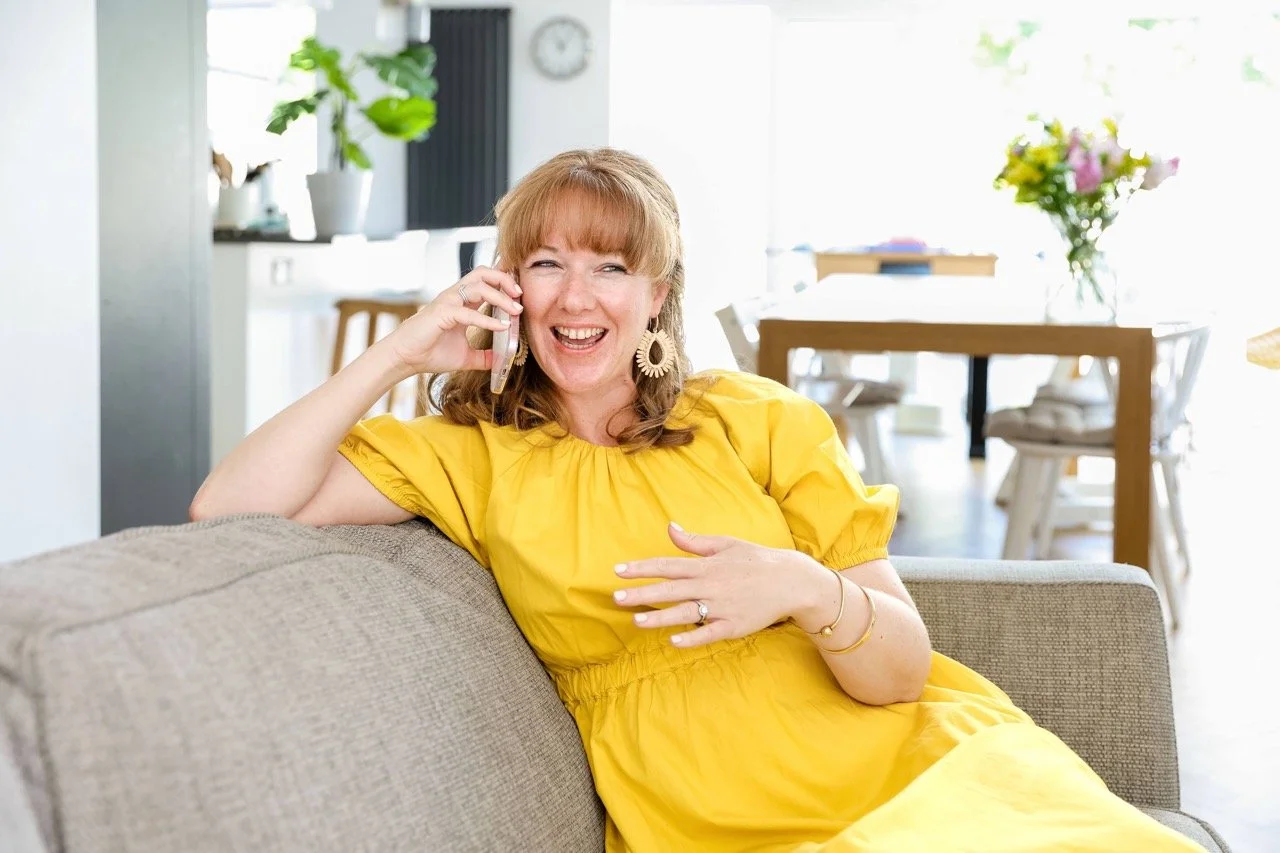Swift, simple sales calls with your dream clients - here’s how when you leverage your website
Maybe your sales calls aren’t feeling as smooth and successful as you’d like….
Or you’re jumping on calls with people who, deep down, you know aren’t quite the right fit for your services.
If it’s starting to feel like a drain on your time and energy, here’s something to consider....what if your website did some of the heavy lifting for you?
Because when set up the right way, your website becomes more than just an online presence - it becomes a hardworking, strategic part of your business 💫.
And by signposting potential clients to your website before they book a call it can:
Get them invested in your world before they even reach out
Shorten the time between discovery and decision
Position you as the obvious choice for the right-fit people who truly value your work
In this blog, we'll be diving into how your website can work harder for you.
To make sure it’s not just looking great but actually supporting your business goals ➡ here are five key questions to ask yourself.
These will help you pinpoint any gaps, refine your messaging - and create a site that truly connects with your ideal clients.
For each of the points below, audit your website, and ask yourself:
1. Are people really getting a glimpse into your world?
Your website isn’t just a place for people to find you, it’s where they experience your brand, connect with your approach - and think - this is exactly what I need.
To make sure your website isn’t just looking good but actually working hard for your business and how people experience your brand, consider:
Sharing insights through a blog or resources page. This helps build authority and keeps visitors coming back if they’re not 100% ready to book a call.
Creating behind-the-scenes content or a brand story that feels personal. People want to work with people, not just businesses.
Highlight your unique approach and values. Are you showcasing what makes you truly different? Let that shine, and this will transform how well people connect with you.
The more your website feels like your space, where your audience can see what you stand for, the more trust and connection you’ll build before they even reach out.
2. What do people need to know before they reach out?
A huge number of websites are created with business goals front and centre.
But if you reframe things from your clients’ perspective, and what their goals are when they visit your website - you can start to influence how they feel about your work - and you!
Information potential client are looking for will vary wildly across industries, but might include:
Seeing if you’ve worked with businesses like theirs before
Comparing your offers against those advertised by your competitors
Discovering if you use a particular method or process, and why have you chosen this approach?
Finding out how to contact you (this should always be super easy - and believe it or not, it isn't always!)
Quick tip: List out all the things a potential client might need to know before deciding to work with you. Then, audit your website and check if you’re actually answering these questions. I do this constantly—if a client or someone at a networking event asks me something useful, I make sure it’s covered on my site.
3. Is your website building the know/like/trust factor?
A great place to do this is your About page. This is not where you should list your previous experience like a CV.
This is chance to:
show why you do what you do and how you help your clients
highlight what makes you different
let people get to know you
Adding testimonials and reviews is also huge.
Websites with social proof can increase conversions by up to 58%.
4. Are you providing enough detail?
The reality is: not everybody buys in the same way.
Some people just need the big-picture outcome, while others want all the details before making a decision.
If your website doesn’t cater to both, you could be losing potential clients.
And if you're worried about overwhelming people with too much info, try using accordion drop-downs so visitors can access extra details only if they want to.
5. Are you giving enough information about your process and exactly how clients can work with you?
Clarity is everything. After someone decides they want to work with you, what happens next?
Make sure your website explains:
The process after a sales call: what are the next steps?
How clients officially book in (and what’s required from them)
What they can expect at each stage
When people feel confident about what’s next, they’re more likely to move forward, meaning fewer objections on sales calls and a smoother process for both of you .
When each of these elements is working together, your website becomes more than just a touchpoint.....
It actively increases the perceived value of your work. This is when potential clients land on your site, instantly see the alignment, and move forward with confidence, often without needing a sales call at all.
Looking for a new website for your business?
MORE FROM THE BRIGHT JOURNAL








